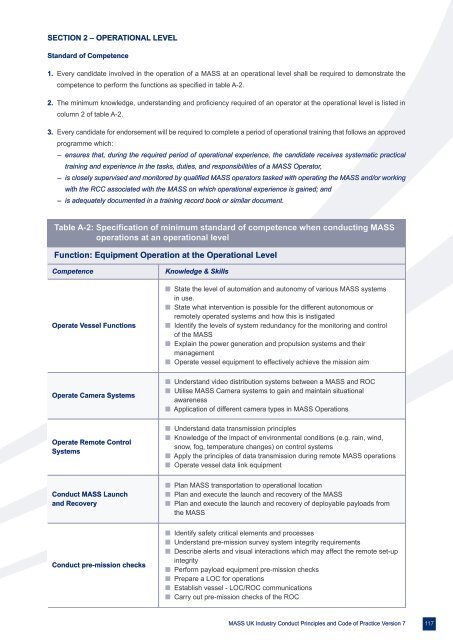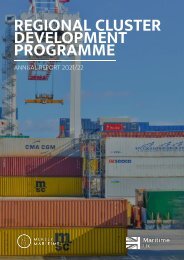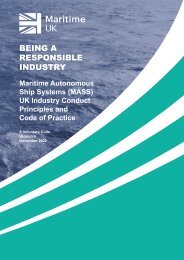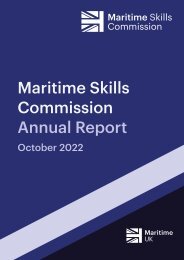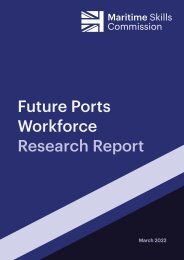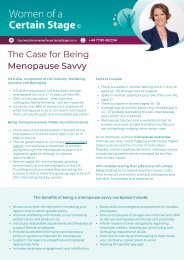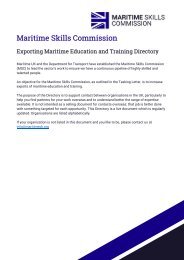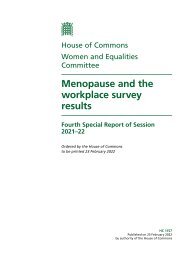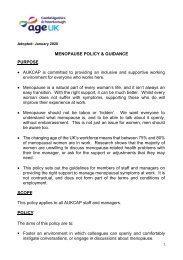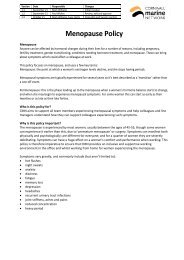COP_2023_V7_pages
Create successful ePaper yourself
Turn your PDF publications into a flip-book with our unique Google optimized e-Paper software.
SECTION 2 – OPERATIONAL LEVEL<br />
Standard of Competence<br />
1. Every candidate involved in the operation of a MASS at an operational level shall be required to demonstrate the<br />
competence to perform the functions as specified in table A-2.<br />
2. The minimum knowledge, understanding and proficiency required of an operator at the operational level is listed in<br />
column 2 of table A-2.<br />
3. Every candidate for endorsement will be required to complete a period of operational training that follows an approved<br />
programme which:<br />
– ensures that, during the required period of operational experience, the candidate receives systematic practical<br />
training and experience in the tasks, duties, and responsibilities of a MASS Operator,<br />
– is closely supervised and monitored by qualified MASS operators tasked with operating the MASS and/or working<br />
with the RCC associated with the MASS on which operational experience is gained; and<br />
– is adequately documented in a training record book or similar document.<br />
Table A-2: Specification of minimum standard of competence when conducting MASS<br />
operations at an operational level<br />
Function: Equipment Operation at the Operational Level<br />
Competence<br />
Operate Vessel Functions<br />
Knowledge & Skills<br />
n State the level of automation and autonomy of various MASS systems<br />
in use.<br />
n State what intervention is possible for the different autonomous or<br />
remotely operated systems and how this is instigated<br />
n Identify the levels of system redundancy for the monitoring and control<br />
of the MASS<br />
n Explain the power generation and propulsion systems and their<br />
management<br />
n Operate vessel equipment to effectively achieve the mission aim<br />
Operate Camera Systems<br />
n Understand video distribution systems between a MASS and ROC<br />
n Utilise MASS Camera systems to gain and maintain situational<br />
awareness<br />
n Application of different camera types in MASS Operations<br />
Operate Remote Control<br />
Systems<br />
n Understand data transmission principles<br />
n Knowledge of the impact of environmental conditions (e.g. rain, wind,<br />
snow, fog, temperature changes) on control systems<br />
n Apply the principles of data transmission during remote MASS operations<br />
n Operate vessel data link equipment<br />
Conduct MASS Launch<br />
and Recovery<br />
n Plan MASS transportation to operational location<br />
n Plan and execute the launch and recovery of the MASS<br />
n Plan and execute the launch and recovery of deployable payloads from<br />
the MASS<br />
Conduct pre-mission checks<br />
n Identify safety critical elements and processes<br />
n Understand pre-mission survey system integrity requirements<br />
n Describe alerts and visual interactions which may affect the remote set-up<br />
integrity<br />
n Perform payload equipment pre-mission checks<br />
n Prepare a LOC for operations<br />
n Establish vessel - LOC/ROC communications<br />
n Carry out pre-mission checks of the ROC<br />
MASS UK Industry Conduct Principles and Code of Practice Version 7 117


